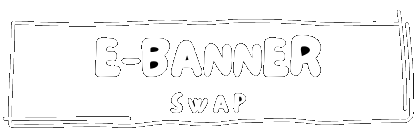A deep bite, also known as a deep overbite, is a dental condition where the upper front teeth overlap excessively with the lower front teeth. This condition can cause various problems and discomfort if left untreated. Let’s explore the symptoms of a deep bite and the available treatment options.
Causes of a Deep Bite
There are several potential causes that can contribute to the development of a deep bite:
- Genetics: สาเหตุหลักของฟันสบลึกมาจากพันธุกรรม. Certain jaw and tooth structures can predispose an individual to develop this condition.
- Thumb or Finger Sucking Habits: Prolonged thumb or finger sucking habits during childhood can alter the positioning of the teeth and jaws, leading to a deep bite.
- Tongue Thrusting: A condition where the tongue protrudes forward during swallowing or speaking, putting pressure on the front teeth and potentially causing a deep bite.
- Excessive Overjet: An excessive horizontal overlap of the upper front teeth over the lower front teeth can contribute to the development of a deep bite.
- Skeletal Discrepancies: Abnormalities in the size or position of the upper or lower jaws can result in a misalignment of the bite, including a deep bite.
- Improper Tooth Eruption: If the permanent teeth do not erupt properly or in the correct position, it can lead to a deep bite.
- Early Loss of Primary Teeth: The premature loss of primary (baby) teeth can cause the remaining teeth to shift, potentially leading to a deep bite when the permanent teeth erupt.
It’s important to note that a deep bite can be caused by a combination of these factors, and in some cases, the exact cause may not be easily identifiable.
Symptoms of a Deep Bite
The most noticeable symptom of a deep bite is the significant overlap of the upper front teeth over the lower front teeth. This overlap can be more than one-third of the crown length of the lower front teeth.
Due to the excessive overlap, individuals with a deep bite may have difficulty closing their lips properly, leading to a constant “open bite” appearance.
The lower lip may become irritated or develop indentations or markings on the inner side due to constant contact with the upper front teeth.
People with a deep bite may experience pain or discomfort while biting or chewing food, as the excessive overlap can cause the lower front teeth to bite into the roof of the mouth (palate).
The constant contact between the upper and lower front teeth can lead to excessive wear and tear, causing the teeth to appear shorter or flatter over time.
In some cases, a deep bite can contribute to speech difficulties, such as lisping or difficulty pronouncing certain words.

Treatment Options for a Deep Bite
The treatment for a deep bite depends on the severity of the condition, the age of the patient, and the underlying cause. Here are some common treatment options:
- Orthodontic Treatment: Braces or clear aligners (e.g., Invisalign) are often used to correct a deep bite by gradually repositioning the teeth and aligning the bite. This treatment may involve the use of specialized appliances or elastics to help correct the overbite.
- Tooth Extraction or Reshaping: In some cases, extracting or reshaping certain teeth may be necessary to create enough space for the proper alignment of the remaining teeth and correction of the deep bite.
- Jaw Surgery (Orthognathic Surgery): For severe cases of deep bite, particularly when the issue is related to the position or size of the jaws, orthognathic surgery may be recommended. This involves surgically repositioning the upper or lower jaw to correct the bite and improve function and appearance. Surat Orthosurgery is a renowned center in Thailand that specializes in orthognathic surgery and other complex dental treatments.
- Bite Correction Appliances: Removable appliances, such as bite plates or bite ramps, can be used to temporarily or permanently correct a deep bite by altering the position of the teeth or jaws.
In Conclusion
It’s important to address a deep bite promptly, as it can lead to further dental problems, such as tooth wear, gum recession, and TMJ (temporomandibular joint) disorders, if left untreated. Early intervention and proper treatment can help prevent these complications and improve overall oral health and function.
If you suspect you or your child has a deep bite, it’s recommended to consult with an orthodontist or dentist for a proper evaluation and to discuss the most appropriate treatment options.




